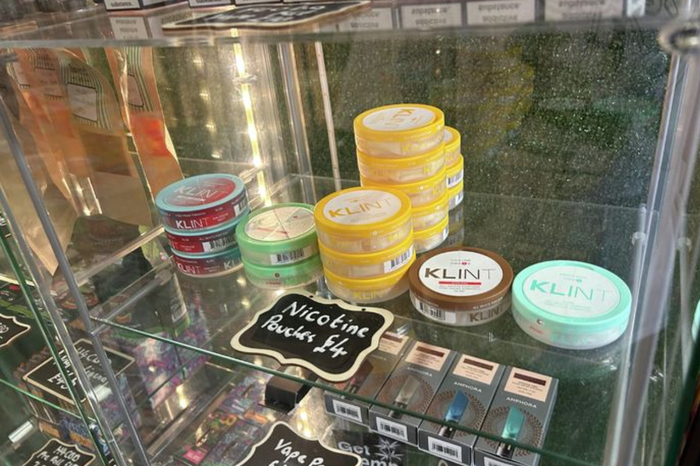Vintage Varsity: noughties narcotics
Resident Archivist Eleanor Dougan investigates the prevalent drug culture of Cambridge student life in the noughties

What did the Cambridge drug scene look like in the 2000s? A 2005 Varsity investigation illuminated the “random and eccentric” nature of drug distribution and student drug culture in our city. It revealed that “drugs of every nature [were] said to be easily obtainable across the city” and a former student noted that “Cambridge [was] one of the safest universities in the country for suppliers to survive”.
There were various sites in the city centre notorious for the distribution of Class A drugs, and a popular coffee shop was even known to be the location of a drugs ring. The “strong network” of dealers in Cambridge allegedly included “many of the city’s homeless, including those licensed to sell the Big Issue” – Varsity’s investigators were offered “any weight of anything you like”. However, the article reveals that, for the most part, students brought drugs from home into Cambridge rather than purchasing them from local dealers. Varsity discovered that the Cambridge Police apparently “pay[ed] little attention towards student drug dealers and users”, and one former student expressed his surprise at how easy it was to sell cocaine to Cambridge students (he often sold half a kilogram each week).
“Several science students, à la Walter White, allegedly used their knowledge to purify and distribute heroin”
Local street heroin was reportedly of very poor quality and therefore several science students, à la Walter White, allegedly used their knowledge to purify and distribute heroin. This Varsity article profiles one of these individuals: a chemical engineering student who taught himself how to purify heroin online – although, by the time of the interview, he was “giving up heroin and drug dealing to concentrate on his degree”.
The drug network in 2000s Cambridge extended beyond the student body. This 2005 inquiry reports on a college porter who was involved in activities including “the use and distribution of hard drugs to prostitution”. A student recalls no action being taken when he was caught smoking heroin in his college JCR since “that porter knows I got shit on him too”. A graduate told Varsity he believes he was “suspected by members of the university faculty” when he sold cocaine as a student in need of extra money.
Despite this, other early 2000s Varsity articles indicate that this seemingly rampant drug use was perhaps not the case for many noughties Cambridge students. For instance, a February 2002 article observes the “very limited” use of ecstasy by Cambridge students in comparison to its popularity at other UK universities (perhaps this was due to the inflated prices of ecstasy in East Anglia where there was a noticeable shortage of ecstasy, as noted in the 2005 investigation).
Additionally, a November 2003 writer gives a scathing criticism of pot as “a poor second to booze” and regretfully recounts “groggily g[iving] a Frenchman I hardly knew a massage” and “walking to Grantchester barefoot”. He laments the tragic nature of the rife drug culture in Cambridge given that most marijuana crops are produced in third world countries (he points out that “blood, toil, and near slavery funded Mr Marks’ rise to predominance amongst student middle class layabouts”), and condemns it as representative of failing modern capitalism.
Nevertheless, Varsity continued to report on student drug use throughout the 2010s. An October 2013 news story highlighted the “explosion” of ‘smart drugs’ such as the central nervous system stimulants Modafinil (usually prescribed to treat narcolepsy) and Ritalin (usually prescribed for children with ADHD) to “boost exam performance”. The article also mentions the discontentment of students who felt that this use of cognitive enhancing drugs during exams was unfair. Varsity conducted interviews about “the downsides of the high life” in April 2018 where one student divulged that her dihydrocodeine addiction was her “way to get through Cambridge” while another remarked that his “degree has suffered” as a consequence of his frequent drug use.
 News / CUP announces funding scheme for under-represented academics19 December 2025
News / CUP announces funding scheme for under-represented academics19 December 2025 News / Cambridge welcomes UK rejoining the Erasmus scheme20 December 2025
News / Cambridge welcomes UK rejoining the Erasmus scheme20 December 2025 Comment / Yes, I’m brown – but I have more important things to say22 December 2025
Comment / Yes, I’m brown – but I have more important things to say22 December 2025 News / SU reluctantly registers controversial women’s soc18 December 2025
News / SU reluctantly registers controversial women’s soc18 December 2025 Film & TV / Timothée Chalamet and the era-fication of film marketing21 December 2025
Film & TV / Timothée Chalamet and the era-fication of film marketing21 December 2025









